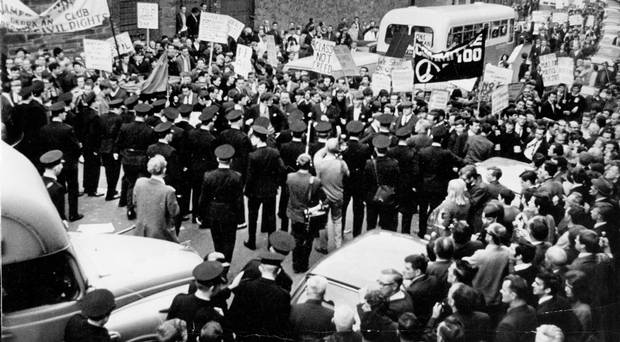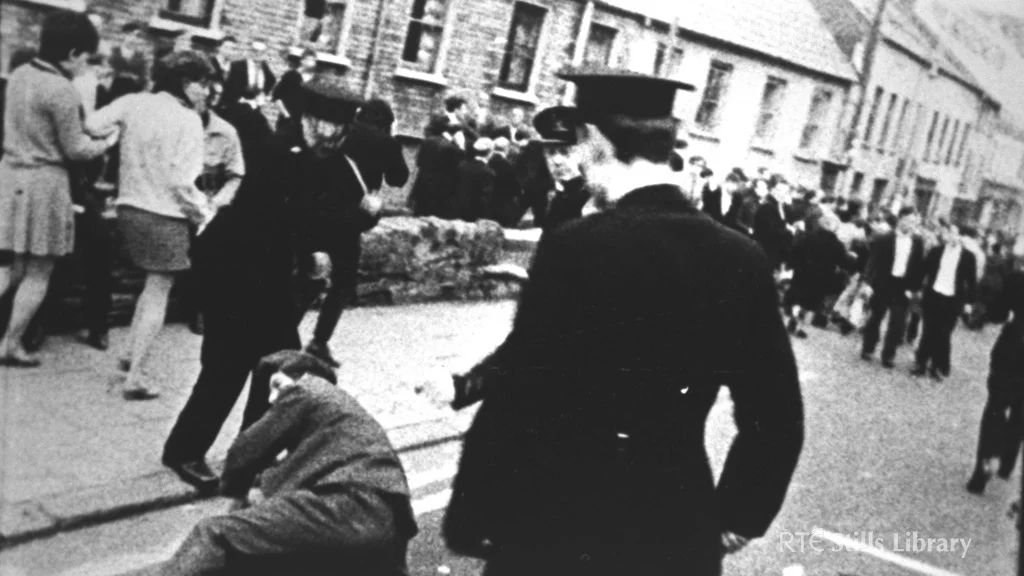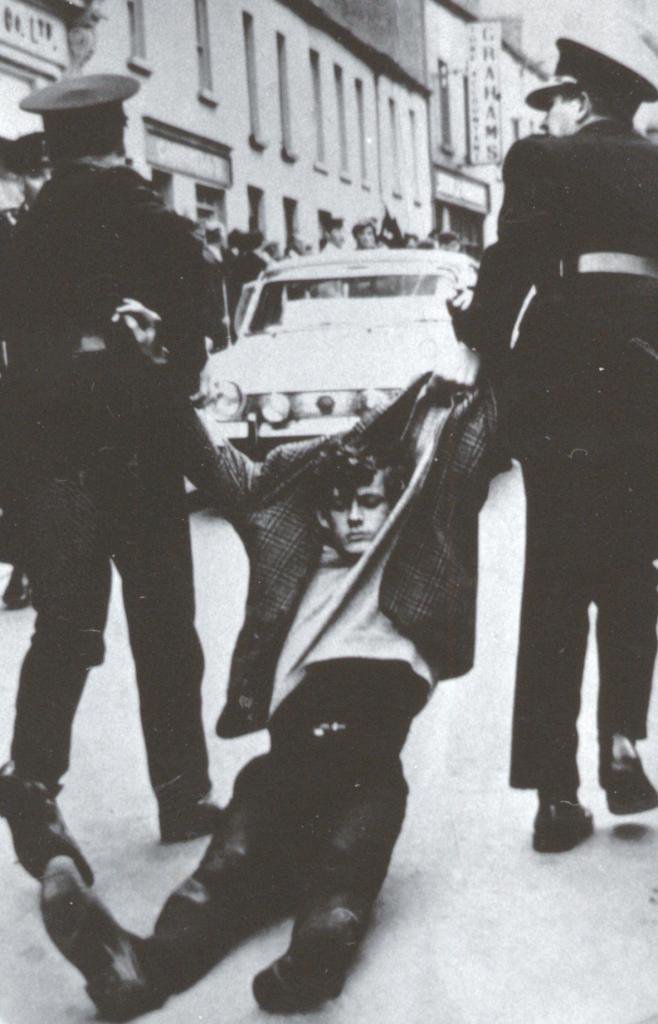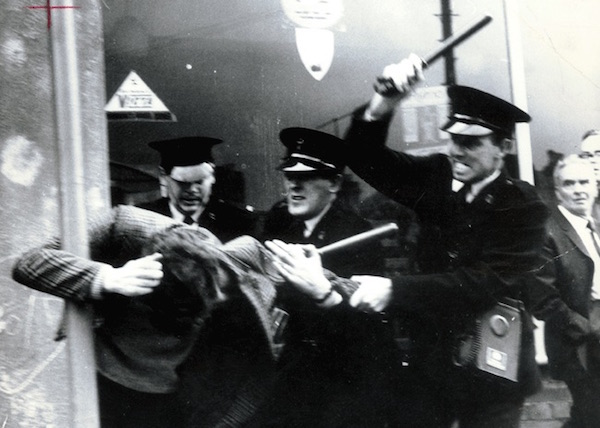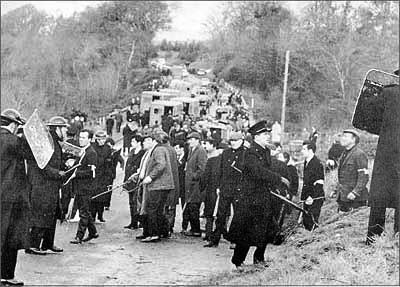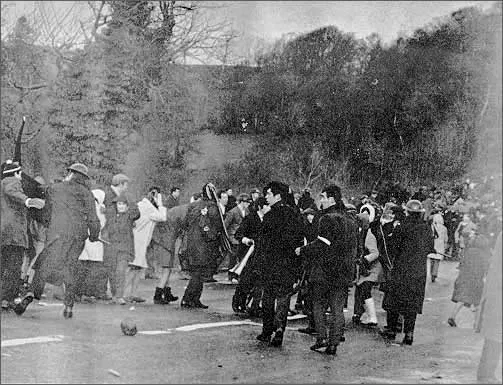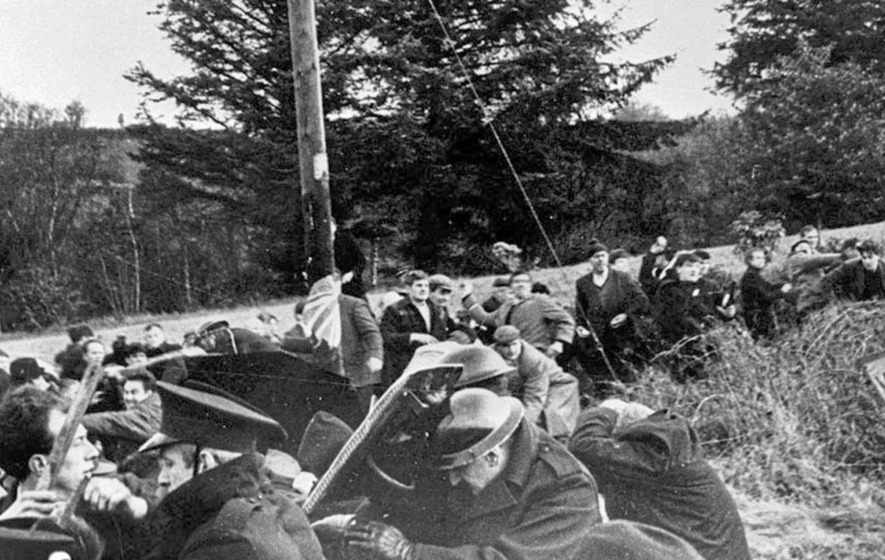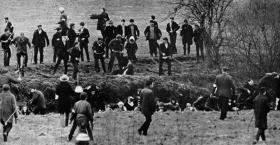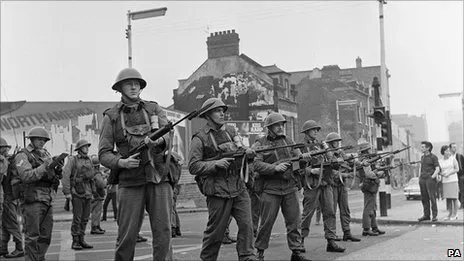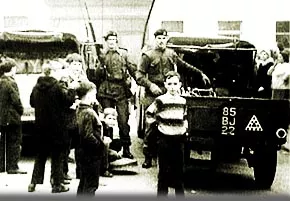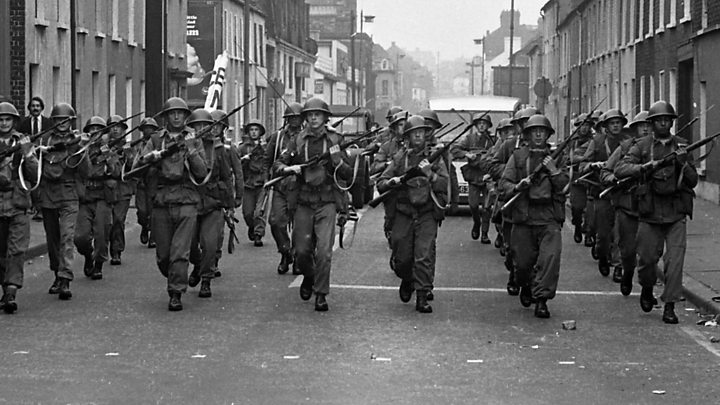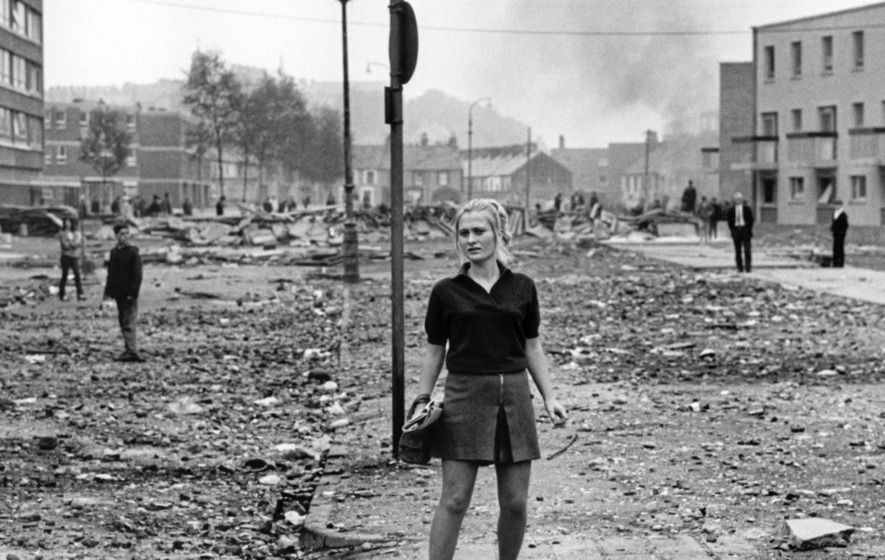Alan Douglas (RUC inspector from 1976 to 2001) made an historically-suspect claim in @BBCnireland& #39;s & #39; #CopsOnTheFrontline& #39;:
"I don& #39;t want it to go down in history that the Royal Ulster Constabulary were responsible for the Troubles. We didn& #39;t start the fire. We put the fire out."
"I don& #39;t want it to go down in history that the Royal Ulster Constabulary were responsible for the Troubles. We didn& #39;t start the fire. We put the fire out."
The reality is that the RUC *did* start the fire.
The role of the RUC, the northern statelet& #39;s armed police force, was to enforce and protect the interests of the unionist status quo through the threat or use of violence, if and when it deemed necessary. https://twitter.com/DanielCollins85/status/1194454858725806080">https://twitter.com/DanielCol...
The role of the RUC, the northern statelet& #39;s armed police force, was to enforce and protect the interests of the unionist status quo through the threat or use of violence, if and when it deemed necessary. https://twitter.com/DanielCollins85/status/1194454858725806080">https://twitter.com/DanielCol...
When Catholics attempted to achieve civil rights and social equality through peaceful means, such as marching and civil disobedience, the RUC brutally suppressed their efforts; the violent confrontation on Derry& #39;s Duke Street on 5th of October, 1968 exemplified the RUC clampdown.
At Burntollet Bridge on the 4th of January in 1969, RUC officers who were "on-duty" at the scene stood by as loyalists attacked civil rights marchers. About 100 off-duty members of the reserve police force, the "B-Specials", who were also present, even joined in with the attack.
Already estranged from the political process in an effective one-party unionist statelet, what message did RUC suppression and brutality against the civil rights movement send to the Catholic community in respect of their attempting to effect social reform through peaceful means?
The RUC instigated and prolonged (for three days) the Battle of the Bogside, which occurred in August of 1969 after the RUC& #39;s aggressive incursion into Derry& #39;s mainly-Catholic Bogside area with a loyalist mob set on attacking the Bogside& #39;s residents in tow. https://www.youtube.com/watch?v=Gpg-pEpaSwU">https://www.youtube.com/watch...
Prevailing inequitable social conditions and the final straw of the RUC& #39;s Bogside invasion provoked such widespread civil unrest among nationalist communities across the north, the unionist government requested the British army be deployed to restore order. https://twitter.com/DanielCollins85/status/1107691596051632131">https://twitter.com/DanielCol...
With situation now militarised, things soon spiralled out of control. (P)IRA emerged a few months later, in December of 1969, with many nationalists now resorting to use of arms to defend themselves and their communities and to force political change that peaceful means couldn& #39;t.
Nevertheless, these facts remain; the first four deaths of the "Troubles" - Francis McCloskey (67), Sammy Devenny (42), John Gallagher (30) and Patrick Rooney (9) - were all at the hands of either the RUC or "B-Specials". All four of those killed were unarmed Catholic civilians.
Those four deaths were soon followed by the deaths of Hugh McCabe (20), Samuel McLarnon (27) and Michael Lynch (28), which were the sixth, seventh and eighth deaths of the conflict and also all at the hands of the RUC. They too were all unarmed Catholics.
As for the RUC supposedly putting the fire of the "Troubles" out, the reality is that a peace settlement came about after military stalemate between the IRA and the British army, while the RUC& #39;s own flame had to be put out in order to secure that peace.
The RUC, with its notorious reputation (built up over decades) for anti-Catholic sectarianism and collusion with loyalist paramilitaries, was so discredited and distrusted among the nationalist community, that it was replaced by a new cross-community force, the PSNI, in 2001.

 Read on Twitter
Read on Twitter